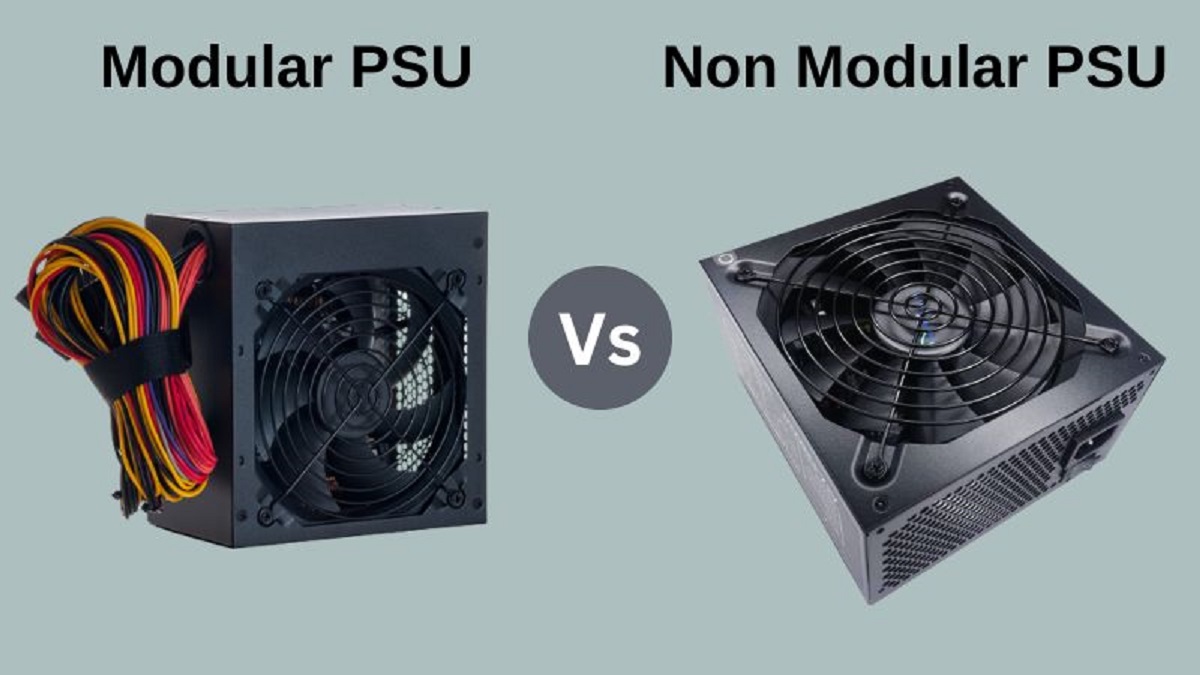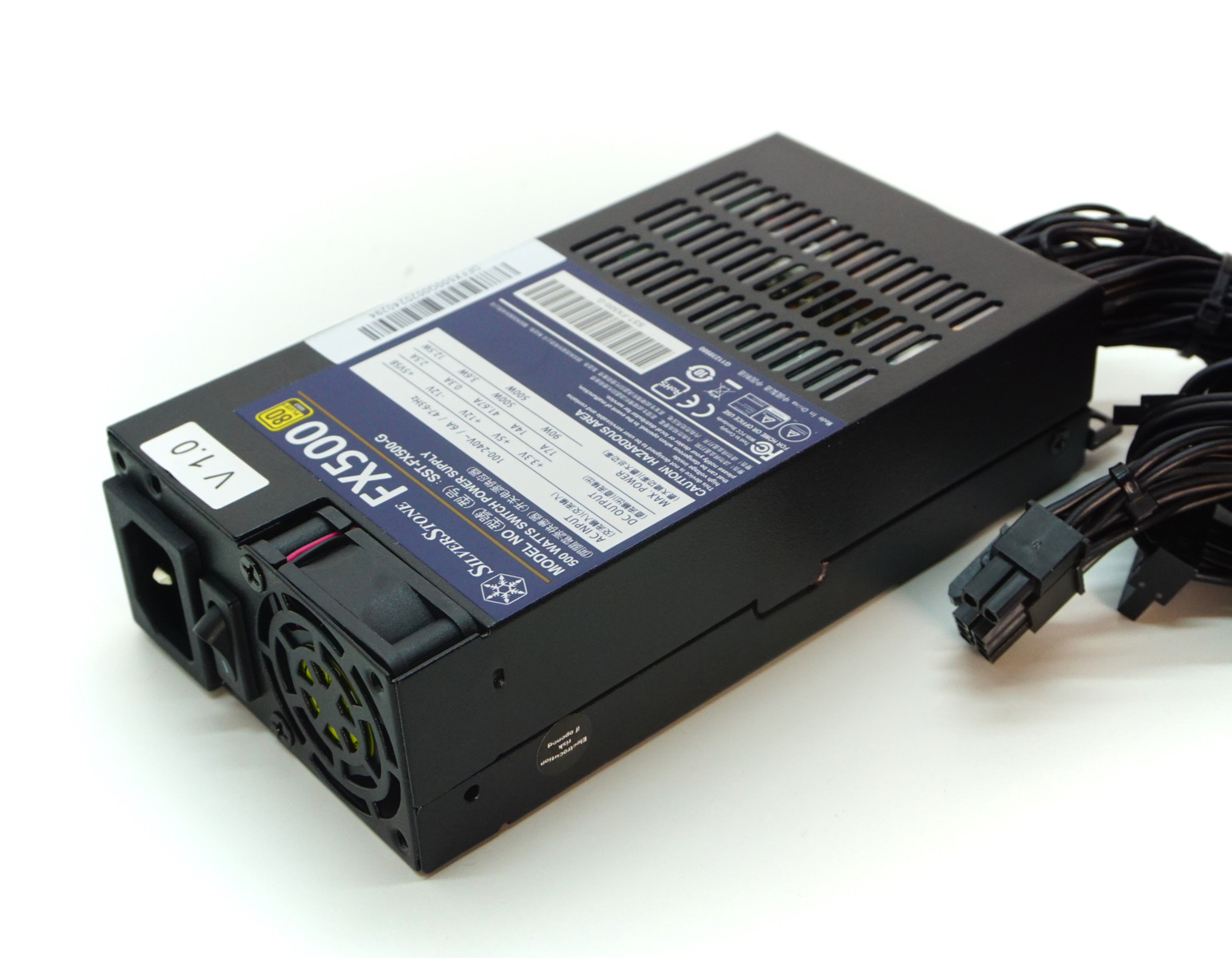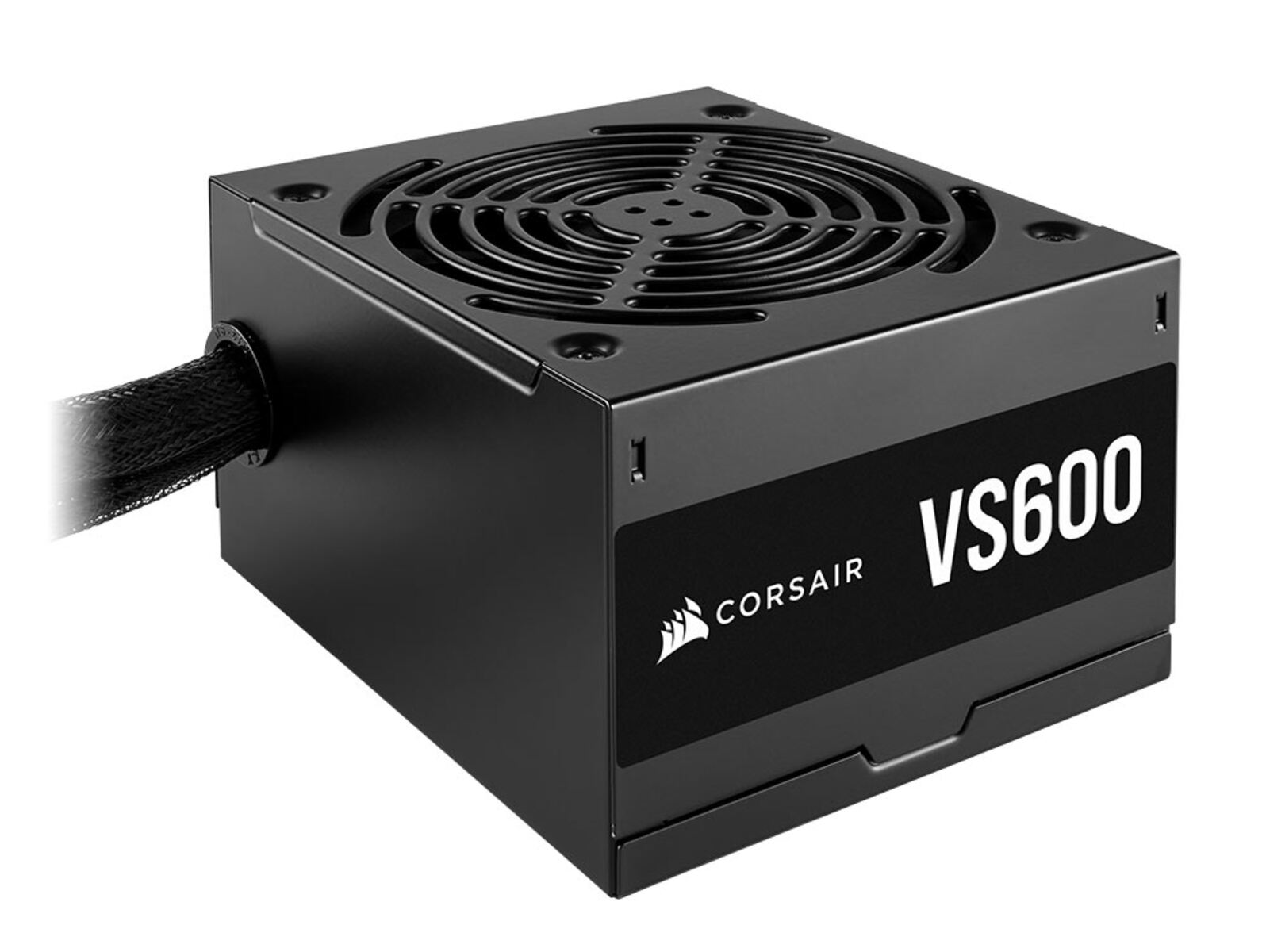Introduction
A power supply unit (PSU) is a fundamental component in a computer system that provides electrical power to the other components within the computer. It is responsible for converting the alternating current (AC) power from the wall outlet into direct current (DC) power that the computer’s internal components can utilize. Without a reliable PSU, a computer would not be able to function properly.
When it comes to choosing a PSU for your computer, there are two main types: modular and non-modular. These terms refer to the design and configuration of the PSU’s cable system. In this article, we will explore the differences between modular and non-modular PSUs, discussing their benefits and drawbacks to help you make an informed decision when selecting a PSU for your computer system.
Modular PSUs and non-modular PSUs each have their own unique features that can impact the overall functionality and convenience of your computer system. Understanding the differences between these two types of PSUs will allow you to make the best choice based on your specific needs and preferences.
So, whether you are building a new computer system or looking to upgrade your existing one, read on to discover the differences between modular and non-modular PSUs and determine which one is right for you.
What is a PSU?
A Power Supply Unit (PSU) is a critical component of a computer that provides the necessary electrical power to all the other hardware components. It is responsible for converting the alternating current (AC) received from a power outlet into direct current (DC) that the computer can utilize.
The PSU takes the AC power and converts it into multiple DC voltages, such as +3.3V, +5V, and +12V, which are distributed to the various components in the computer, including the motherboard, processor, memory, storage devices, and peripherals. By supplying the precise and stable power levels required by each component, the PSU ensures their proper and efficient functioning.
PSUs come in different power ratings, usually measured in watts (W). The power rating of a PSU determines its capacity to deliver power to the system. Higher-powered PSUs are typically required for systems with powerful processors, multiple graphics cards, and numerous storage devices, while lower-powered PSUs are suitable for basic office or home use.
Furthermore, PSUs come in different form factors and sizes to fit specific computer cases. The most common PSU form factor is the ATX (Advanced Technology eXtended), which is widely used in desktop computers. Other form factors, such as SFX (Small Form Factor) and TFX (Thin Form Factor), are designed for compact or slim cases.
Overall, the PSU plays a vital role in powering and ensuring the stability of a computer system. Choosing the right PSU that provides sufficient power and meets the required specifications is crucial for the smooth operation and longevity of your computer.
What is Modular PSU?
A modular power supply unit (PSU) is a type of PSU that features detachable cables. Unlike non-modular PSUs, which have a fixed set of cables permanently attached to the unit, modular PSUs allow users to connect only the necessary cables and leave out the rest. This modular design offers greater flexibility and customization options for cable management.
In a modular PSU, the cables are connected to the PSU through modular connectors. These connectors include ports for the main motherboard power, graphics card power, peripheral power, SATA power, and other types of connections. Users can choose the cables they need and connect them to the corresponding ports on the PSU, leaving out any unused cables.
The main advantage of a modular PSU is its ability to simplify cable management. With traditional non-modular PSUs, users often have to deal with a multitude of unused cables that can clutter the inside of the computer case. This can obstruct airflow and make it challenging to keep the system clean and organized. In contrast, modular PSUs allow for a cleaner and more streamlined cable management setup, resulting in improved airflow and easier maintenance.
Another benefit of modular PSUs is that they make it easier to upgrade or replace components. When adding or changing components, such as a new graphics card or storage drive, users can simply connect the necessary modular cables without having to untangle and remove unnecessary cables. This saves time and effort during the installation process.
Modular PSUs also offer flexibility for cable customization. Some modular PSUs come with a selection of different cable types and lengths, allowing users to choose cables that best suit their specific needs. This customization option can be particularly useful for users with unique case layouts or specific cable routing requirements.
However, it is important to note that modular PSUs are generally more expensive than non-modular PSUs due to their added features and convenience. Additionally, the modular connectors introduce a slight increase in electrical resistance and potential points of failure compared to permanently attached cables. Nonetheless, these drawbacks are minimal and typically do not affect the overall performance and functionality of the PSU.
In summary, a modular PSU offers greater flexibility, simplified cable management, and customization options compared to non-modular PSUs. It is a preferred choice for users who prioritize clean cable management, ease of installation and maintenance, and customization possibilities for their computer systems.
Benefits of Modular PSU
Modular power supply units (PSUs) offer several advantages over non-modular PSUs. Let’s explore the benefits of a modular PSU:
- Improved Cable Management: One of the most significant advantages of a modular PSU is the improved cable management it provides. With non-modular PSUs, there are often excess cables that need to be tucked away or secured inside the computer case. This can obstruct airflow, increase heat build-up, and make it difficult to access components or make upgrades. With a modular PSU, you have the flexibility to connect only the necessary cables, resulting in a cleaner and more organized interior with better airflow.
- Easier Upgrades and Maintenance: Modular PSUs make upgrading or replacing components much simpler. Instead of dealing with a jumble of cables that are permanently attached to the PSU, you can easily detach and replace specific cables when adding new hardware. This saves time and effort, especially when installing components like graphics cards or storage drives that require specific connections.
- Reduced Cable Clutter: Non-modular PSUs often come with an excessive number of cables, even if you don’t need them all. This can create a mess inside the computer case, making it difficult to manage and obstructing airflow. With a modular PSU, you can eliminate unused cables, reducing cable clutter and creating a neater and more organized setup.
- Flexibility and Customization: Modular PSUs offer greater flexibility and customization options. Some modular PSUs come with a variety of cable types and lengths, allowing you to choose the cables that best fit your specific needs. This customization ability is especially useful for users with unique case layouts or specific cable routing requirements.
- Improved Airflow and Cooling: The reduction in cable clutter achieved with a modular PSU also improves airflow inside the computer case. Proper airflow is essential for keeping components cool and maintaining optimal performance. By eliminating unnecessary cables, a modular PSU allows for better airflow, which contributes to improved cooling and helps prevent heat-related issues.
Overall, a modular PSU offers improved cable management, easier upgrades and maintenance, reduced cable clutter, flexibility for customization, and better airflow and cooling. These advantages make it an excellent choice for users who value neat and organized computer setups, ease of hardware installation, and optimal performance from their systems.
Drawbacks of Modular PSU
While modular power supply units (PSUs) offer various benefits, it’s essential to consider their drawbacks before making a decision. Here are some drawbacks of a modular PSU:
- Higher Cost: One of the primary drawbacks of modular PSUs is their higher cost compared to non-modular PSUs. The added convenience and flexibility of detachable cables come at a price. If you’re on a tight budget, a non-modular PSU may be a more cost-effective option.
- Potential Points of Failure: Modular PSUs introduce additional connectors between the PSU and the components. While the connectors are designed to be secure and reliable, they do create potential points of failure. If not properly connected or if there is a faulty connector, it may lead to power delivery issues or even system instability. However, it’s worth noting that modern modular PSUs are generally well-designed and the risk of failure is minimal.
- Slightly Increased Electrical Resistance: The additional connectors in a modular PSU can cause a slight increase in electrical resistance. While this increase is minimal and usually negligible, it might affect the overall power efficiency of the PSU. However, for the average user, the impact on the overall performance and power consumption is typically insignificant.
- Potential for Misplacement: With the detachable cables of a modular PSU, there is a possibility of misplacing or losing cables. This can be frustrating when you need to replace a cable or make changes to the setup. It’s important to keep track of the cables and store them in a safe place to avoid inconvenience in the future.
- Compatibility Concerns: When considering a modular PSU, it’s crucial to ensure compatibility with your system and components. Some older or specialized hardware might require specific power connectors that may not be available with all modular PSUs. Checking the compatibility and availability of the required cables is important to ensure all your components can be properly powered.
These drawbacks should be taken into account when deciding between a modular PSU and a non-modular PSU. While the drawbacks of a modular PSU are generally minor, it’s essential to weigh the benefits against the potential disadvantages to make an informed choice that aligns with your specific needs and budget.
What is Non-Modular PSU?
A non-modular power supply unit (PSU) is a type of PSU that features permanently attached cables. Unlike modular PSUs, which allow users to connect only the necessary cables, non-modular PSUs come with a fixed set of cables that cannot be detached or removed from the unit.
In a non-modular PSU, all the cables, including the motherboard power, graphics card power, peripheral power, SATA power, and other connections, are directly connected to the PSU. These cables are usually bundled together and exit the PSU as a single unit.
The primary characteristic of a non-modular PSU is its simplicity. Since the cables are permanently attached, there is no need to worry about connecting or disconnecting cables during installation or component upgrades. The fixed cable design also eliminates the concerns of misplacing or losing cables.
Non-modular PSUs are often regarded as a more budget-friendly option compared to modular PSUs. They are usually priced lower due to their simpler design and construction. This makes non-modular PSUs an attractive choice for users on a tighter budget or those who prioritize cost-effectiveness over customization and cable management.
However, the lack of modular cables in non-modular PSUs can result in cable clutter inside the computer case. With unused cables that cannot be removed, it can be challenging to maintain a clean and organized cable management setup. Additionally, the excess cables can obstruct airflow, potentially leading to increased heat buildup and reduced cooling efficiency.
Despite these limitations, non-modular PSUs provide reliable power delivery to the computer components. They are suitable for users who don’t plan on frequent hardware upgrades, have minimal cable management requirements, and are working within a budget-constrained build.
It’s important to carefully consider your specific needs and preferences in terms of cable management, customization, and budget before deciding between a non-modular PSU and a modular PSU for your computer system.
Benefits of Non-Modular PSU
While non-modular power supply units (PSUs) may lack the flexibility and customization options of modular PSUs, they still offer several advantages. Here are some benefits of a non-modular PSU:
- Cost-Effective Option: Non-modular PSUs are often more affordable compared to modular PSUs. Their simpler design and construction result in lower production costs, making them a budget-friendly choice, especially for users who are building a computer on a tighter budget.
- Simplified Installation: One of the significant advantages of a non-modular PSU is its straightforward installation process. Since all the cables are permanently attached, there is no need to worry about connecting or managing detachable cables during installation. This makes the setup process simpler and quicker, especially for users who have limited knowledge or experience with computer hardware.
- No Cable Misplacement: With a non-modular PSU, the cables are permanently attached to the unit, which eliminates the risk of misplacing or losing cables. This can be particularly helpful for users who may not have spare cables readily available or those who prefer the convenience of not having to store or keep track of additional cables.
- No Compatibility Concerns: Non-modular PSUs typically have all the required cables for standard components, ensuring compatibility right out of the box. There is no need to worry about whether you have the correct modular cables or if the PSU supports specific hardware connections. This makes non-modular PSUs a hassle-free choice for users who want to minimize compatibility concerns.
- Cable Stability: Since the cables in a non-modular PSU are permanently attached, there is no risk of loose or improperly connected cables causing power delivery issues. The fixed cables ensure a stable and reliable connection between the PSU and the components, resulting in consistent power supply and performance.
These benefits make non-modular PSUs an appealing option for users who are on a budget, value simplicity and ease of installation, prefer a streamlined cable management approach, and prioritize compatibility and stability in their computer systems. However, it’s important to assess your specific needs and consider the potential disadvantages of a non-modular PSU, such as limited customization options and potential cable clutter, before making a decision.
Drawbacks of Non-Modular PSU
While non-modular power supply units (PSUs) offer affordability and simplicity, they do come with certain drawbacks that need to be considered. Here are some drawbacks of a non-modular PSU:
- Cable Clutter: Non-modular PSUs come with a fixed set of cables that are permanently attached to the unit. This can result in cable clutter inside the computer case, especially if all the cables are not needed. The excess cables can obstruct airflow, impede cooling, and make it challenging to manage and organize the cables effectively.
- Difficult Cable Management: Due to the fixed cables, non-modular PSUs can make cable management and routing more complicated. You may have to deal with unused cables that need to be neatly tucked away or secured inside the case. Improper cable management can hinder airflow, increase the risk of overheating, and make it harder to access and upgrade components in the future.
- Limited Customization: Non-modular PSUs offer limited customization options compared to modular PSUs. You cannot choose or swap out cables to fit your specific requirements. This lack of flexibility can be a disadvantage for users who have unique case layouts or specific cable routing needs.
- Challenging Component Upgrades: When upgrading or replacing components, non-modular PSUs can prove to be more cumbersome. The permanently attached cables may need to be moved around or temporarily detached to access certain components, adding an extra layer of complexity to the upgrade process.
- Aesthetic Considerations: The excess cables and lack of customization in a non-modular PSU can result in a less aesthetically pleasing appearance for the interior of your computer case. If you prioritize a clean and visually appealing build, the fixed cables of a non-modular PSU may hinder your desired aesthetic outcome.
It’s important to weigh these drawbacks against the benefits of a non-modular PSU before making a decision. Consider factors such as your budget, cable management preferences, upgrade plans, and overall aesthetic requirements to determine if a non-modular PSU aligns with your specific needs and priorities.
Which PSU Should You Choose?
When it comes to choosing between a modular PSU and a non-modular PSU, there are several factors to consider in order to make the best decision for your specific needs. Here are some points to help guide you:
- Flexibility and Customization: If you prioritize flexibility and customization in terms of cable management and component upgrades, a modular PSU is the better option. With detachable cables, you can tailor the cable connections to your specific requirements, resulting in a neater and more organized build.
- Budget Constraints: Non-modular PSUs are generally more cost-effective compared to modular PSUs. If you are on a tight budget and don’t require extensive cable management customization, a non-modular PSU can save you money without sacrificing overall performance and reliability.
- Cable Management Preferences: If you value a clean and well-organized interior, a modular PSU offers the advantage of reducing cable clutter and improving airflow. On the other hand, if cable management is not a significant concern for you or you prefer a simple and hassle-free installation process, a non-modular PSU may be suitable for your needs.
- Future Upgrades: Consider your future upgrade plans when choosing a PSU. If you anticipate frequent component upgrades, especially involving graphics cards or storage devices, a modular PSU can make the process easier and more efficient since you can easily connect or disconnect the required cables without dealing with excess cables in the case.
- Aesthetics: If aesthetics are important to you and you prefer a clean and visually appealing build, a modular PSU offers more options for cable management and customization, resulting in a cleaner and more aesthetically pleasing interior.
Ultimately, the choice between a modular PSU and a non-modular PSU depends on your specific needs, budget, and preferences. Consider the advantages and drawbacks of each PSU type and weigh them against your requirements to make an informed decision. Whether you prioritize flexibility, cost-effectiveness, ease of installation, or cable management, selecting the right PSU will contribute to a well-functioning and efficient computer system.
Conclusion
Choosing between a modular power supply unit (PSU) and a non-modular PSU ultimately depends on your specific needs and priorities for your computer system. Both types have their advantages and drawbacks, so let’s summarize:
A modular PSU offers flexibility and customization options with its detachable cables. It allows for improved cable management, easier component upgrades, and better airflow. However, modular PSUs tend to be more expensive and may introduce additional points of failure through the connectors.
On the other hand, a non-modular PSU offers simplicity and cost-effectiveness. It simplifies installation, eliminates the risk of misplacing cables, and ensures compatibility with standard components. However, non-modular PSUs may result in cable clutter, make cable management more challenging, and offer limited customization options.
To make the right choice, consider factors such as your budget, cable management preferences, upgrade plans, and aesthetic requirements. If you prioritize customization, cable management, and component upgrades, a modular PSU is worth considering. However, if cost-effectiveness, simplicity, and compatibility are more important to you, a non-modular PSU may be the better option.
Ultimately, both modular and non-modular PSUs are capable of providing reliable power delivery to your computer system. Choosing the PSU that best aligns with your needs will ensure optimal performance, efficient power utilization, and a well-organized computer build.

























